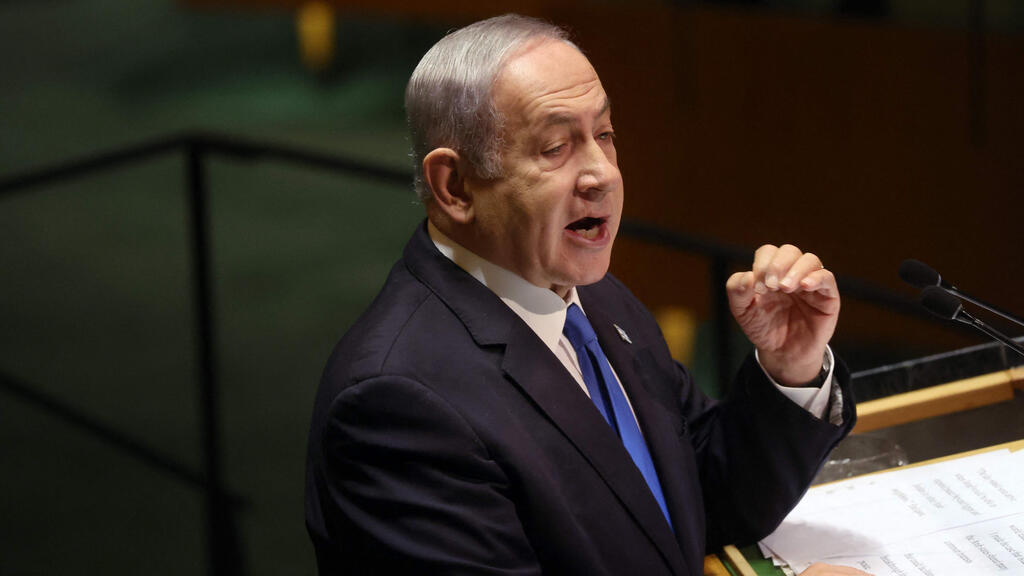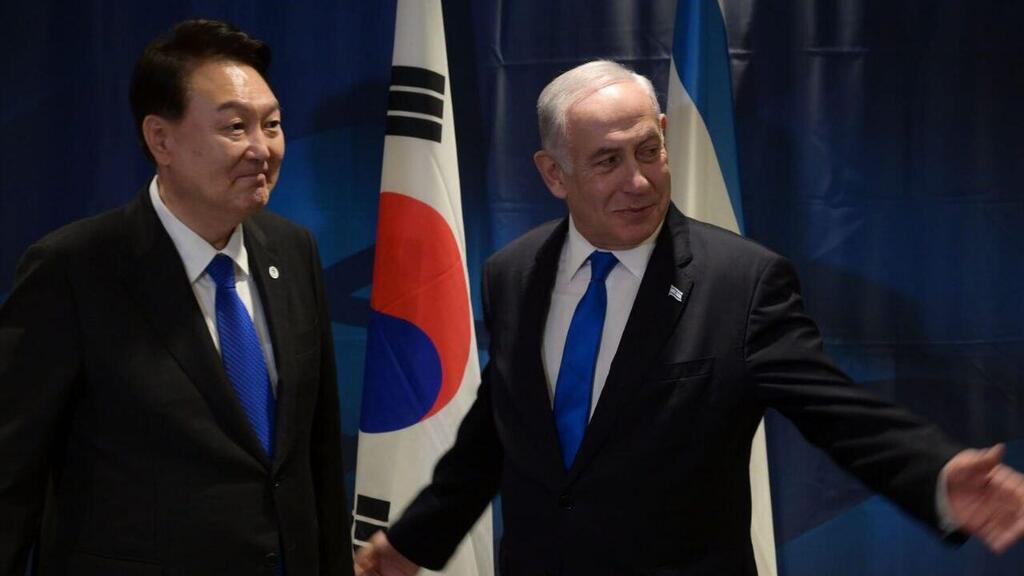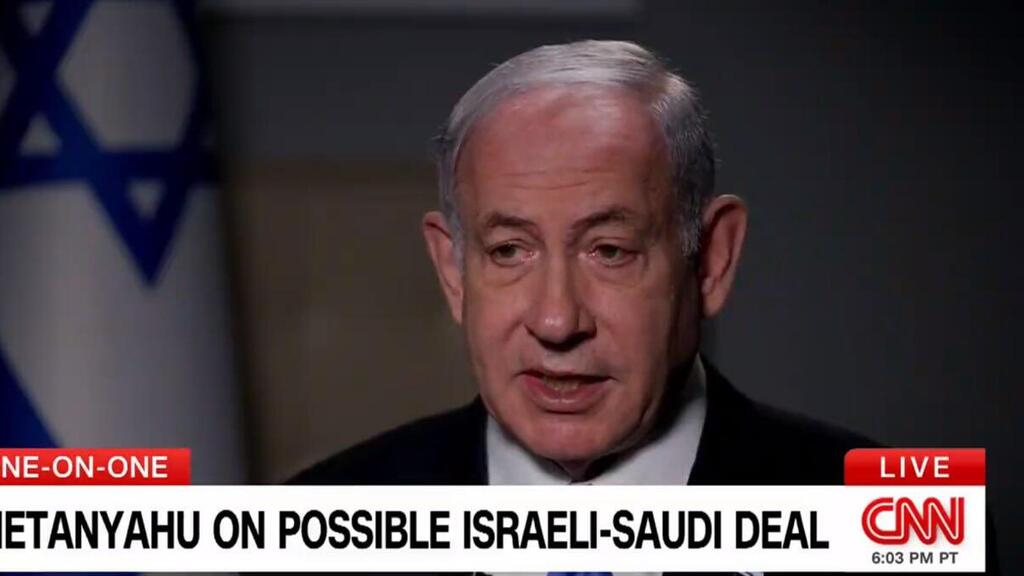Getting your Trinity Audio player ready...
Prime Minister Benjamin Netanyahu left New York overnight after a week-long visit that included his meeting with U.S. President Joe Biden and a speech at the UN General Assembly. In a statement, Netanyahu said he had a successful visit. "I think we achieved much on the visit and intend to bring good things for Israel," he said adding his satisfaction that his UN speech was broadcast live in Saudi Arabia and that two more nations have said they would move their embassies from Tel Aviv to Jerusalem.
More stories:
As the prime minister's entourage left their hotel, some 300 protesters stood outside chanting for democracy and calling out "shame" at the prime minister who was under pressure to arrive in Israel before the Ben Gurion International Airport before it closes for Yom Kippur, around 2 PM.
4 View gallery


Hundreds of protesters outside Benjamin Netanyahu's New York hotel
(Photo: Itamar Eichner)
The anticipated peace deal with Saudi Arabia, which Netanyahu addressed in the UN is still uncertain but the apparent eagerness on the part of the U.S. administration and the Saudi ruler, are already seen as an achievement or as Biden said when he met Netanyahu: had such an idea been so pursued a decade ago, the leaders would have been suspected of having too much whiskey.
But the efforts are real as can be seen in the unusual presence of a Saudi UN delegate in the assembly hall when Netanyahu spoke there on Friday. There are direct talks between Saudi Arabia and Israel that are continuing behind the scenes although some significant obstacles are still in the way including Israeli concessions to the Palestinians, support of all coalition partners in Israel and the need for a 67-majority support in the Senate.
The most dramatic component of the deal is the matter of Saudi Arabia's nuclear ambitions. Riyadh insists on having the ability to enrich Uranium on its soil while Israel and the U.S. offer a civilian nuclear plan similar to the one in the UAE, which does not include enrichment in-house. Netanyahu insists there is no daylight between the Israeli and American positions, but it remains to be seen how amenable the Saudis would be after Crown Prince Mohammed Bin Salman said that if Iran obtains nuclear weapons, his country must have them too.
4 View gallery


Prime Minister Benjamin Netanyahu addresses the UN General Assembly
(Photo: Spencer Platt / Getty Images)
Netanyahu can take pleasure in a successful U.S. visit. His meeting with Biden was tens but good and did not include a public rebuke of the coalition's legislative push to change the balance of power in Israel. White House officials also refrained from criticism in their post-meeting briefings.
On the other hand, Netanyahu did not come away with a firm date for a White House meeting and was only given a general promise that such a meeting would take place. The quicker he is able to get broad consensus for his judicial legislation, the sooner he will receive the official invite. "Between Musk and Biden, the judicial reform is dead," one official traveling with Netanyahu said adding that its death would not be announced but the economic recovery of the shekel and the stock market would be the proof needed.
As far as the Americans are concerned, their suspicion of Netanyahu remains. Although the judicial overhaul is all but forgotten in the extraordinary statements on the Saudi deal, the suspicion was evident in the reporting by the American media and especially on CNN where the prime minister faced persistent questioning from Kaitlan Collins on his refusal to commit to adhering to Supreme Court rulings.
The protests of Netanyahu's government followed him throughout his visit and was loud extensive and larger than ever seen abroad with over 3,000 protesters demonstrating outside the UN during his speech and nearly 600 demonstrating during his visit to San Jose. However, the protests did not disrupt the prime minister's schedule. He did cancel plans to dine at a favored New York restaurant because of protesters but in all honesty, the protesters had no effect on the political meetings.
Netanyahu's week in New York also included meetings with world leaders including German Chancellor Olaf Scholz and Ukrainian President Volodymyr Zelensky at their request and a meeting with Turkish President Recep Tayyip Erdoğan who had until now refused to meet with him.
He also met with South Korean President Yoon Suk Yeol and agreed on groundbreaking cooperation on innovation and with African and Caribbean and South Pacific supporters of Israel.
4 View gallery


South Korean President Yoon Suk Yeol with Prime Minister Benjamin Netanyahu at the UN
(Photo: GPO)
Netanyahu's meeting with Elon Musk was critical for his efforts to portray Israel's high-tech companies once again as leaders in the advancement of AI.
Above all, Netanyahu attempted to mend his personal friendship with Biden and tried to project a personal chemistry with him in public statements at the start of their meeting.
The ultimate success of the U.S. trip would be seen over time.



